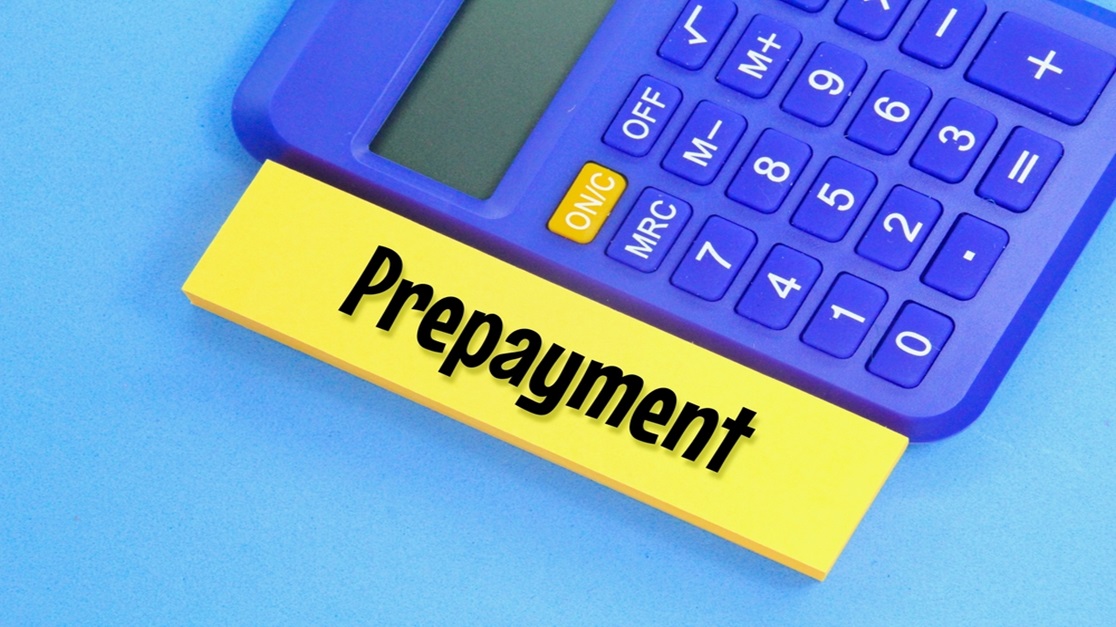Understanding Home Loan Foreclosure and Part Payment: Pros and Cons
April 15, 2025

Let’s assume you’ve taken a home loan for a tenure of 20 years. You’re paying EMIs (Equated Monthly Instalments) against your home loan every month. However, at some point, you decide not to stretch the loan for 20 years. In such a situation, you have two options – either make partial prepayments towards the loan and reduce the tenure or foreclose the loan by paying the outstanding amount in full.
In this blog post, we will dive into advantages of home loan foreclosure vs part-payment to help you navigate your home loan journey more effectively.
What is Home Loan Partial Payment?
As the name suggests, partial prepayment or part payment refers to periodically paying a lump sum amount, over and above your regular EMIs, against your outstanding home loan to reduce the principal amount. The benefits are many – you can effectively shorten the tenure of the loan and reduce the interest burden. You can make part payments periodically as and when you have surplus funds (in the form of bonus or other windfalls) in your arsenal.
Benefits of Home Loan Part Payment
Some of the benefits of loan part payment are as follows:
- Lowers Interest Burden: Reduces the principal amount, which in turn helps in reducing the interest.
- Shorter Tenure: Reducing the principal amount would also help in shortening the loan tenure, thereby relieving you of debt.
What is Home Loan Foreclosure?
Home loan foreclosure or prepayment involves repaying the entire loan amount before the tenure ends. This can can help in significantly reducing the interest liability and close the loan account ahead of schedule. Point to note: fixed rate home loans may come with loan prepayment charges. Ujjivan SFB doesn’t levy any prepayment penalty if the customer is closing the Home Loan with his/her own money. However, 3% loan foreclosure fee would be imposed if the customer is going to transfer the loan to some other bank/FI/HFC/NBFC.
There’s no prepayment penalty fee for floating rate home loans.
Benefits of Home Loan Prepayment/Foreclosure
- Reduce Overall Interest Liability: By prepaying or foreclosing your loan, you can significantly reduce the total interest amount paid over the loan tenure. Making prepayments or choosing foreclosure can help alleviate this substantial interest burden.
- Tax Benefits: Prepayments towards home loans are considered as repayment towards the principal amount, making you eligible for tax deductions. Under Section 80C, you can claim deductions of up to ₹1.5 lakh for the principal part of your home loan.
- Early Debt Freedom: Early closure of home loan relieves you from debt, sooner. You can open a high-interest FD to build a corpus to foreclose your loan.
Things to Consider Before Part Payment or Foreclosure
- Prepayment Penalties: Generally, making part payments toward the principal amount or foreclosing a floating rate home loan doesn’t attract any penalty. However, if you have opted for a fixed rate home loan, you might have to pay a prepayment fee. Check with the bank for better clarity.
- Investment Opportunities: Evaluate investment opportunities available to you before making a decision on part payments. While reducing your interest burden through prepayment seems attractive, it might be more beneficial to invest the surplus amount in alternative options like mutual funds or market-linked instruments offering better returns.
- Tax Benefit Limitations: Keep in mind the tax benefit limitations under Sections 80C and 24b. Prepayments exceeding the specified limits may not provide additional tax benefits. Consider consulting with a tax advisor to maximise your tax savings while making informed decisions regarding part payment or foreclosure.
- Balance Transfer Considerations: While balance transfer offers from banks might seem tempting, analyse the processing fees and other charges associated with it. Compare the costs against the benefits of balance transfer before making a decision.
Final Thoughts
Whether you want to make part payments towards your loan or foreclose your home loan, entirely depends on your financial goals. If in doubt, consult a SEBI-registered financial adviser to make an informed decision.
Buying a house has never been this easy! Avail Ujjivan SFB’s wide range of affordable home loan products and enjoy a hassle-free loan journey. From house purchase loan to plot loans and home improvement loans, we have it all! Alternatively, you can browse through Ujjivan SFB product suite - our wide range of financial products are designed to make your financial life better.
FAQs
1. Can I make multiple prepayments towards my loan?
Yes, you can make multiple part payments periodically towards your home loans, whenever you have surplus funds available.
2. Can I prepay my loan at any time during the tenure?
Yes, you can foreclose your loan at any point in time.
3. Should I opt for balance transfer if I want to prepay my existing home loan?
Evaluate the charges and fees associated with balance transfers and compare them against the potential benefits before making a decision.
4. Is it advisable to opt for a higher EMI to close the loan earlier?
Evaluate your financial standing and choose the loan tenure/EMI accordingly. Your monthly EMIs shouldn’t strain your financial life.
5. Is there any penalty for foreclosure of home loan?
Ujjivan doesn’t charge any foreclosure fee if you close the home loan with your own money. However, 3% foreclosure fee would be levied if you plan to transfer the loan to some other bank/FI/HFC/NBFC etc. No foreclosure fee is levied for floating rate home loans.
Latest Blogs

Telangana Housing Board & KPHB Colony: A Guide to Affordable Urban Housing in Hyderabad
March 14, 2025
As Telangana continues its rapid urbanisation journey, two key housing entities—Telangana Housing Board (THB) and Kukatpally Housing Board Colony (KPHB)—have played critical roles in shaping the state's real estate ecosystem.

Does Checking CIBIL Score Frequently Lower Your Credit Points?
April 07, 2025
Imagine you're planning to apply for a home loan, a credit card, or even a car loan. Naturally, you want to ensure your CIBIL score is in good shape before proceeding.

Explained: Can NRIs Buy an Agricultural Land in India?
April 03, 2025
Real estate investment is often a top priority for Non-Resident Indians (NRIs) looking to retain strong financial ties to India.

How to Improve Your CIBIL Score from 600 to 750: A Step-by-Step Guide
April 02, 2025
Your CIBIL score is like your financial reputation—banks check it before approving loans or credit cards. If your score is hovering around 600, you might face difficulties in securing credit or may get loans with higher interest rates.

What Happens When You Leave Your Savings Account Unused?
April 01, 2025
Imagine waking up one day to find that your hard-earned money is locked away and inaccessible. Sounds stressful, right? This is precisely what happens when you leave your Savings Account inactive for too long.



